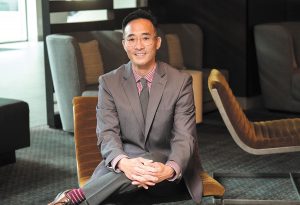Subscriber Benefit
As a subscriber you can listen to articles at work, in the car, or while you work out. Subscribe Now
Nguyen Law LLC, IUPUI
Indiana University Robert H. McKinney School of Law, 2006
Why did you decide to enter the legal profession?
I became interested in the law while taking an undergraduate course at IU Bloomington on education and society. I decided to enter the legal profession because I wanted to influence policy to help build a better society and community through greater access to education.
What does “diversity, equity and inclusion” mean to you?
To me, diversity, equity and inclusion is about understanding systems of oppression, questioning my privilege, and continuously challenging myself and others to live a life that appreciates everyone as humans. It also means that my experience is only one perspective, and that it is critical to acknowledge and elevate perspectives that may be over shadowed and ignored.
How did you get involved in DEI work, and why have you stuck with it?
I became involved in DEI work because I personally experienced racism and discrimination and witnessed firsthand challenges of similarly situated people in my communities. Because of my own privilege with my education and bilingual skills, I found an appreciation to empower others by opening access to information, especially about the law.
What would you say to someone who perceives “DEI” as a business “buzzword”?
Live in a different country that speaks a different language and has a different way of life. Put yourself out of your comfort zone, one where your views may be considered the minority. DEI isn’t about making money; to me, it’s about creating a world, country and community that embraces each other and can rely upon each other in both good and bad times.
What is the most significant change you’ve seen in the legal profession since you began your career?
The most significant change that I have witnessed since joining the legal profession has been greater access to language interpreters. My practice has focused on representing non-English speakers, and I recall times appearing in court where my clients were denied language interpreters. They felt embarrassed and ashamed. I felt challenged in my own representation of their rights. It is well-established that it is a civil right to be able to understand your legal proceedings, and our Indiana courts have come a long way!
What’s the best advice you’ve ever received?
Reconnect to yourself and what matters to you most and leave behind old habits and patterns that don’t serve you. Most importantly, have fun!
How do you spend your free time?
Recently, I have picked back up playing the piano. It is so cathartic. I also love skiing and just watching my sons challenge themselves and achieve what they might have thought to be difficult. Also, international travel is liberating!
What was your favorite — and least favorite — class in law school?
My favorite class in law school was a legal externship with the Indiana Economic Development Corporation. During this externship, I was able to participate in a delegation trip to Taiwan and Vietnam with the lieutenant governor and other state policymakers and business representatives. I made friendships with folks who are now in different areas of politics and business. My least favorite class was, surprisingly, Constitutional Law. I say that because I love constitutional law now and teach aspects of it as part of my course in education law at IUPUI.
You have a goal of improving legal literacy for English language-learners. Why?
As the son of Vietnamese refugees, I understand how it can be confusing to understand a new way of life and the laws of a new place. Through my work at IUPUI, I advance legal literacy among educational professionals to help empower them to advocate for themselves, their students and their students’ families. In my legal practice, we advance legal literacy through free legal clinics, free consultations and webinars, and presentations with various communities where the focus is for people to understand their cases and options. My hope is that through greater legal literacy, communities are empowered for greater success.
Relatedly, you run a multicultural, multilingual law office. What’s the benefit of that, both to you and your clients?
The benefit to me with having a multicultural and multilingual law office is that I am constantly learning something new about different languages, cultures, customs and religions. Having had the opportunity to study, live and travel abroad, I have experienced how the U.S. and world is so diverse. Relatedly, I get to experience the same every day in my client interactions, the food that we share and the cases we work on. I find the human experience fascinating, especially in different contexts. As for our clients, with our multicultural and multilingual office, we are better equipped to translate their experience into the American legal system. We are able to consult and communicate with our clients in their preferred language without the need for friends or family as interpreters. We are able to understand their past lived experiences and put it in the context of the current American legal system and advocate for their rights. We have a common connection with our clients through language, understanding and appreciation.
Please enable JavaScript to view this content.
